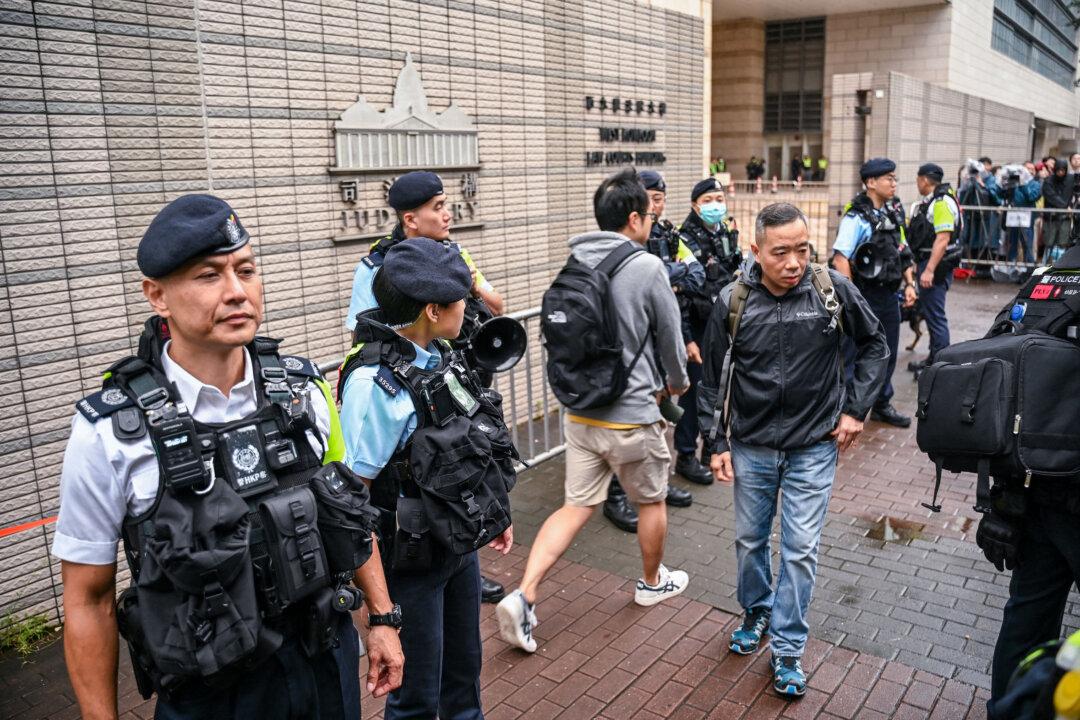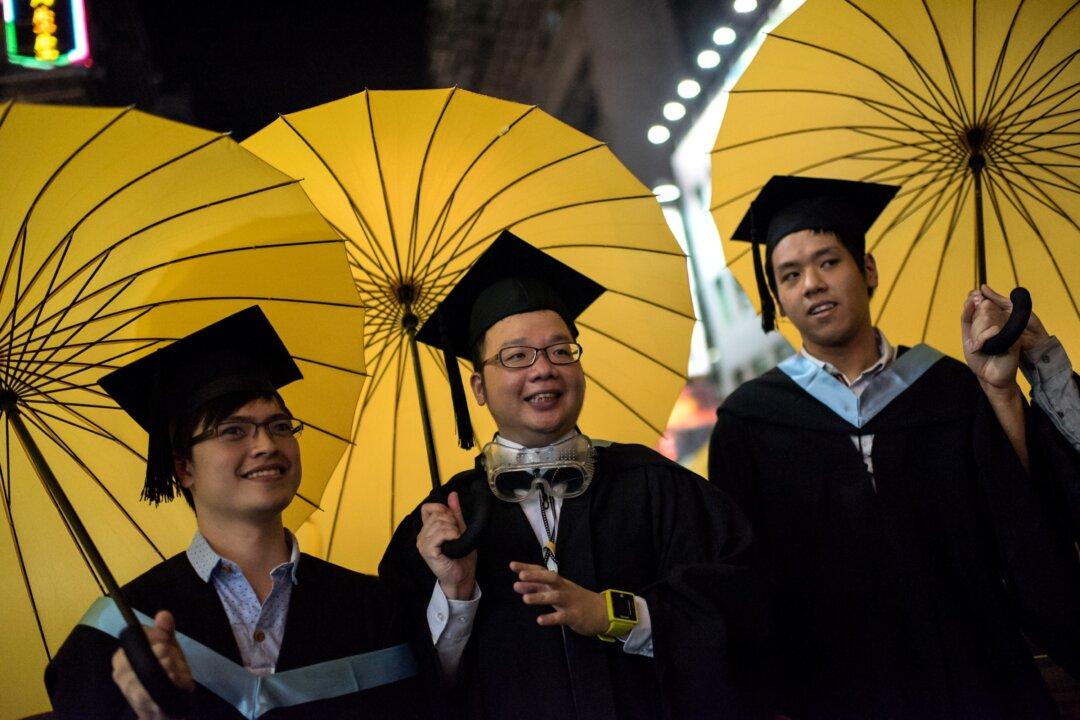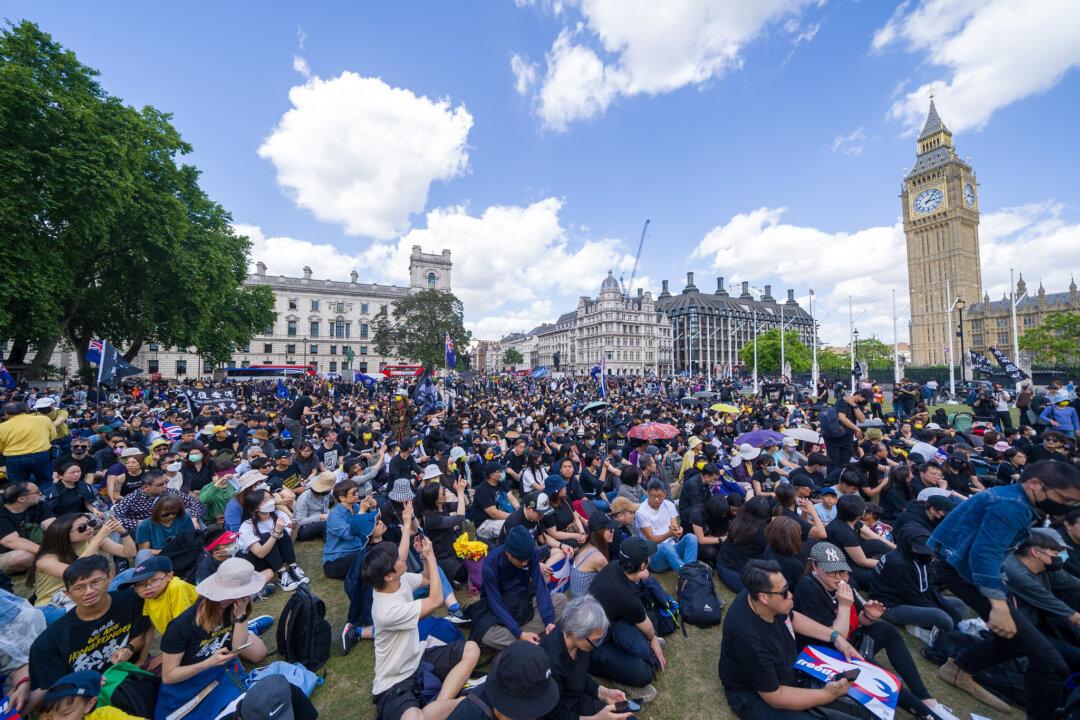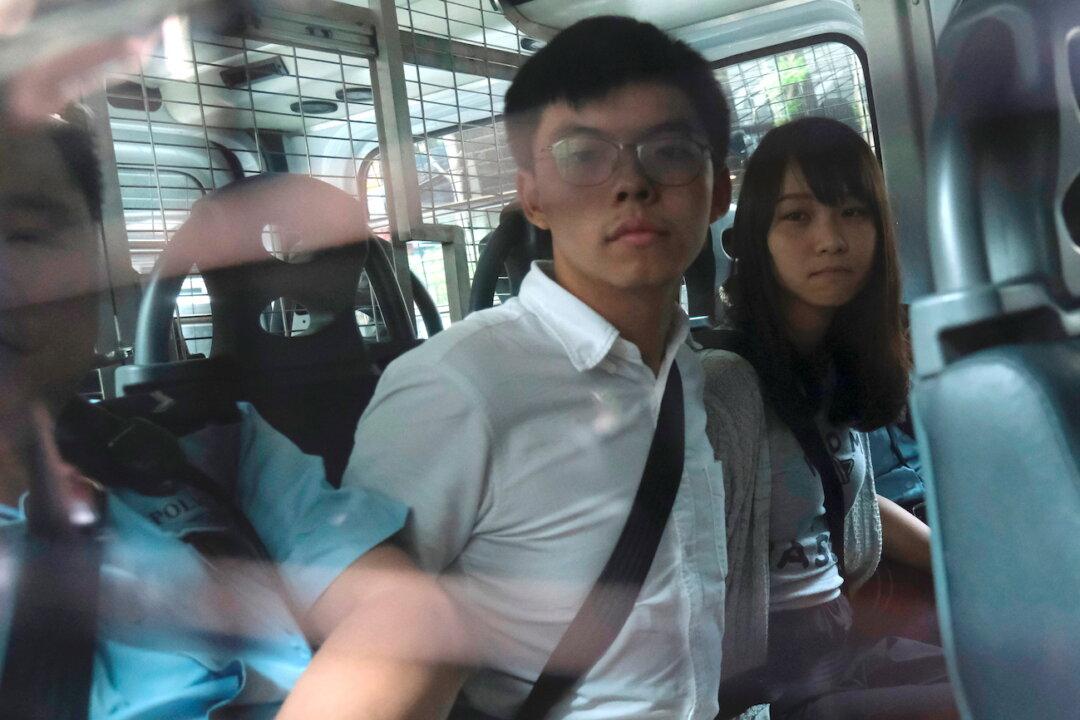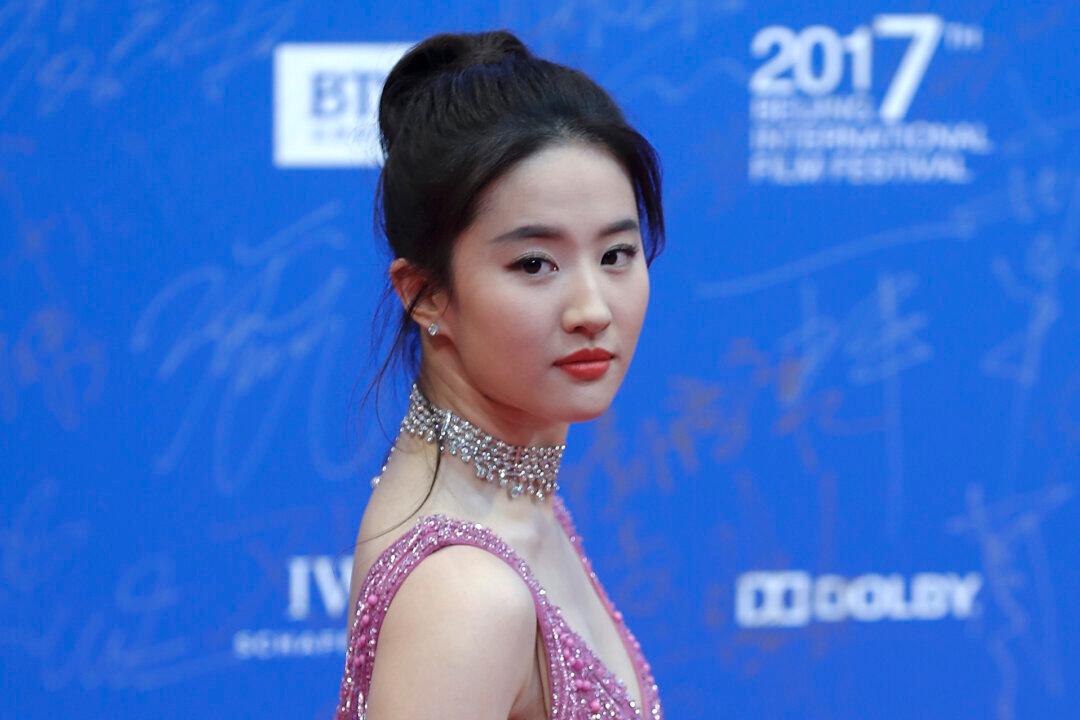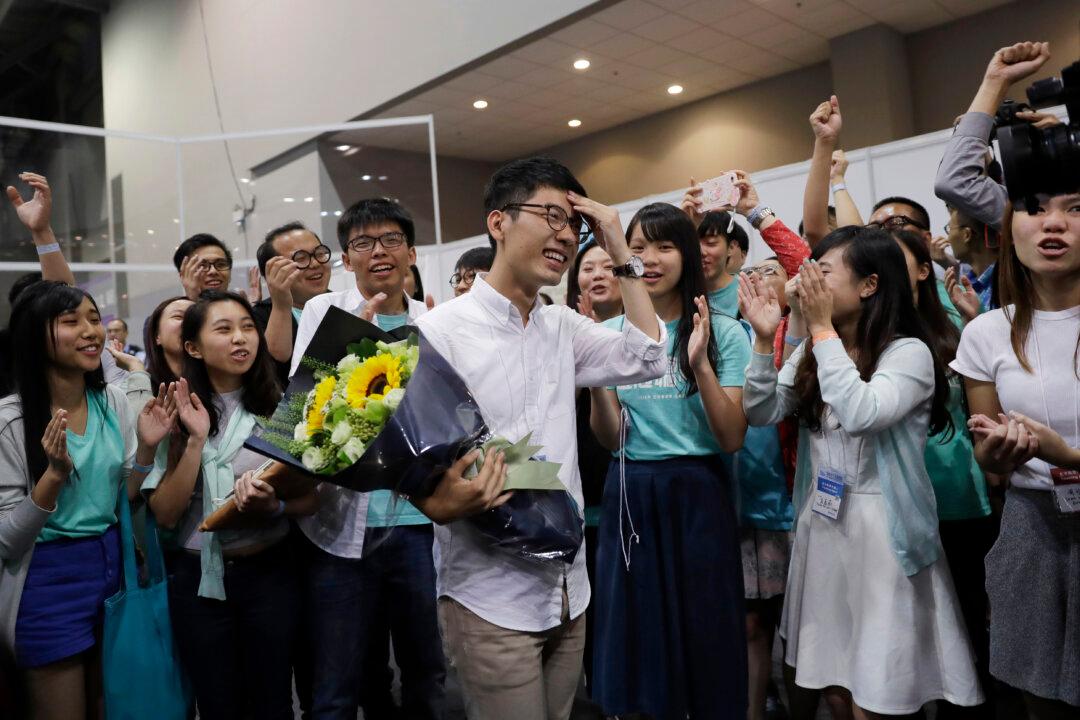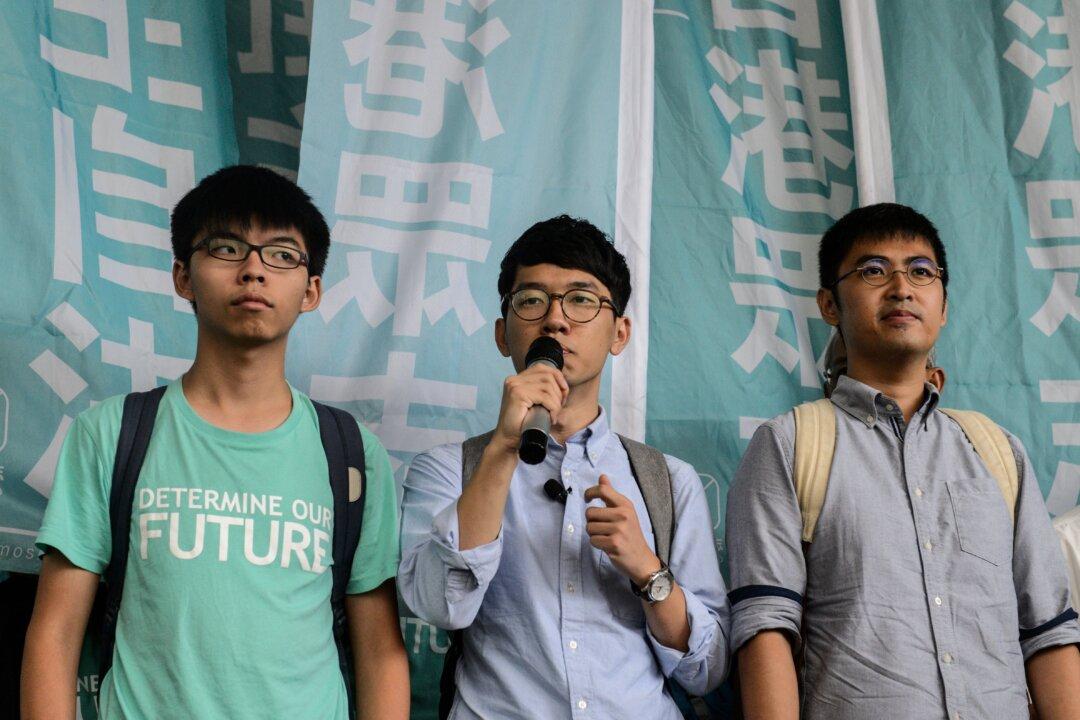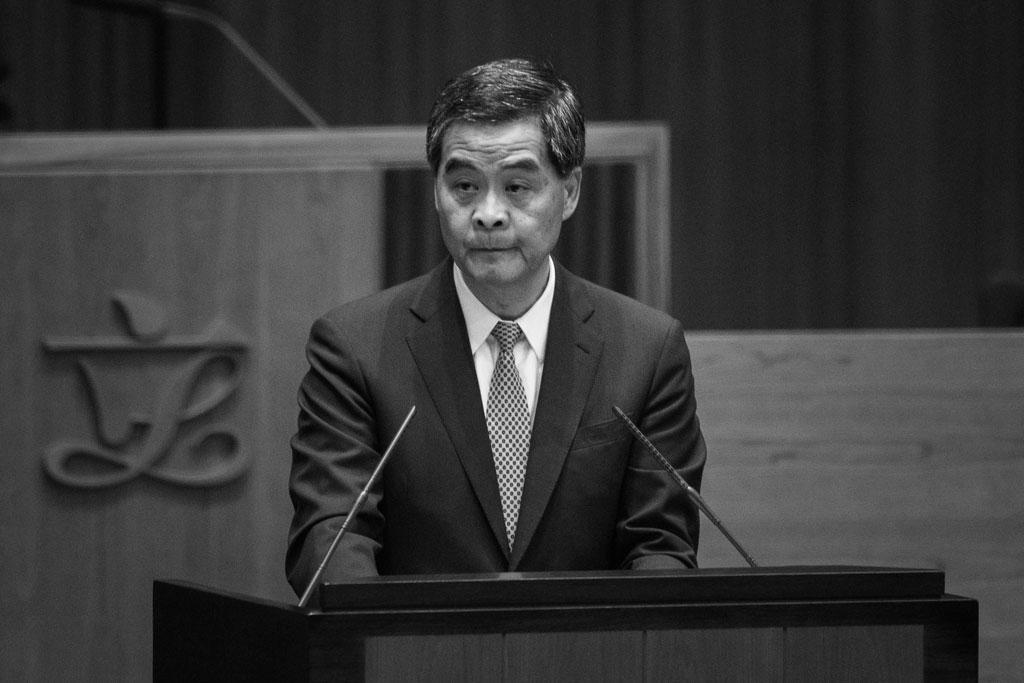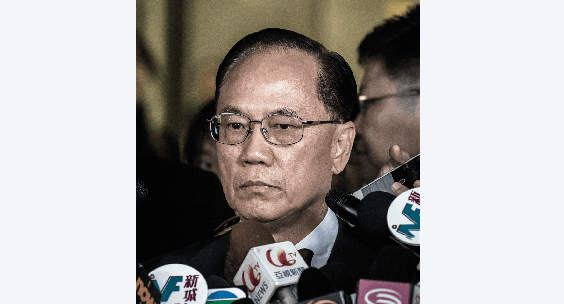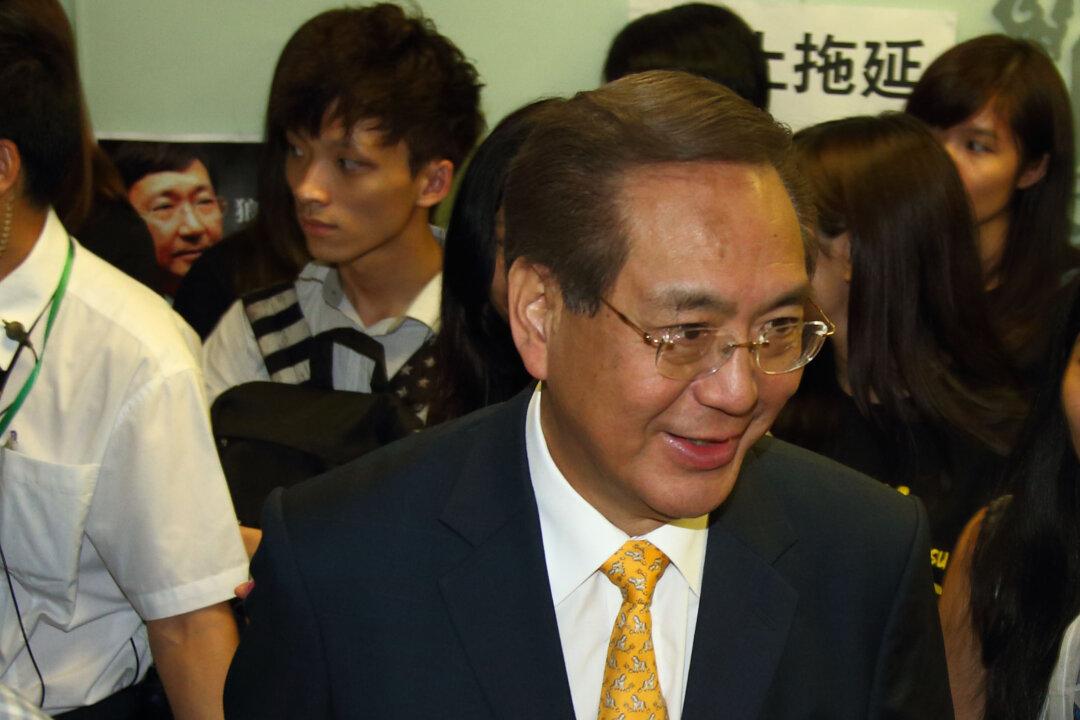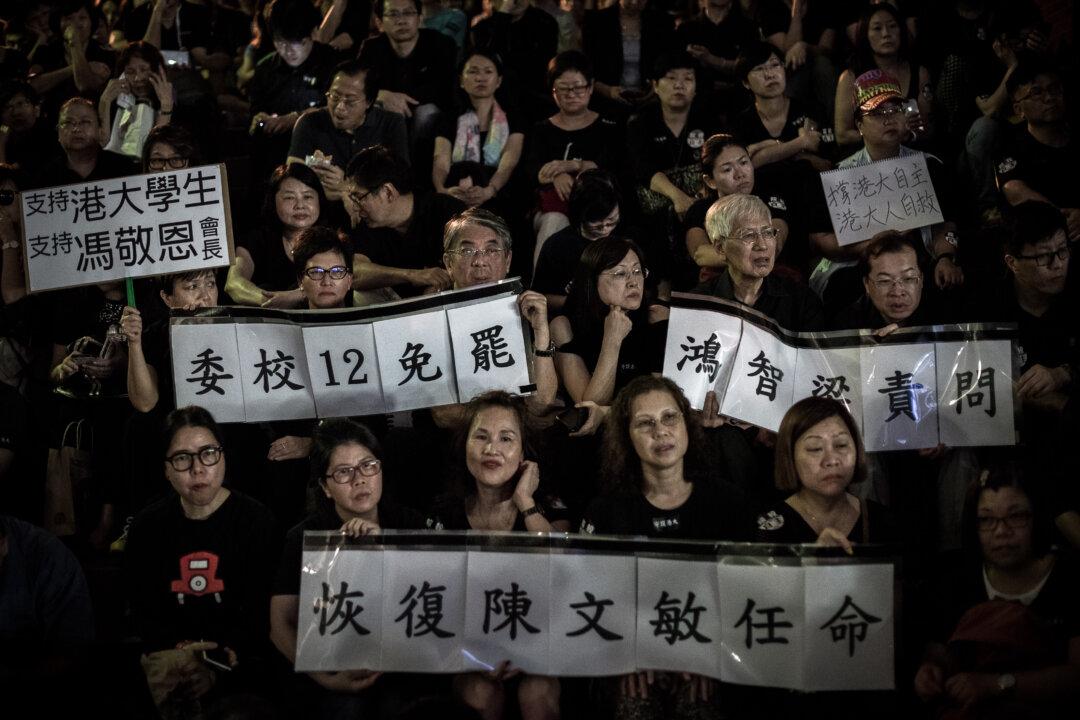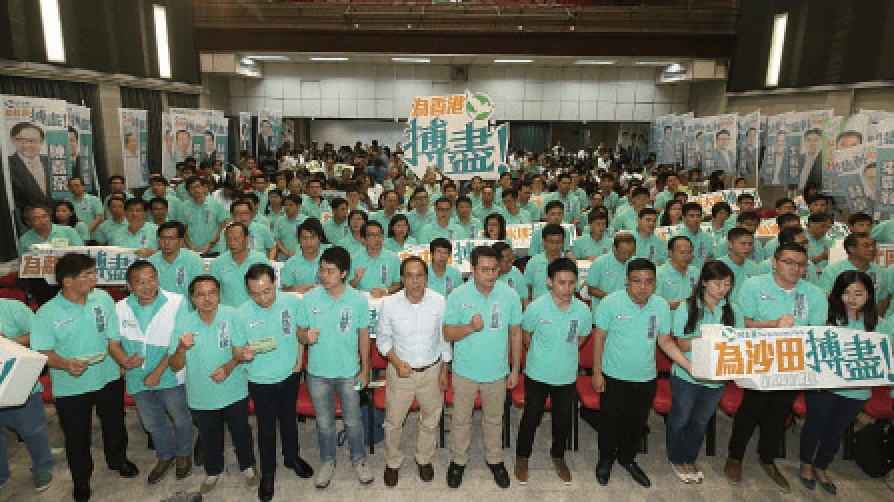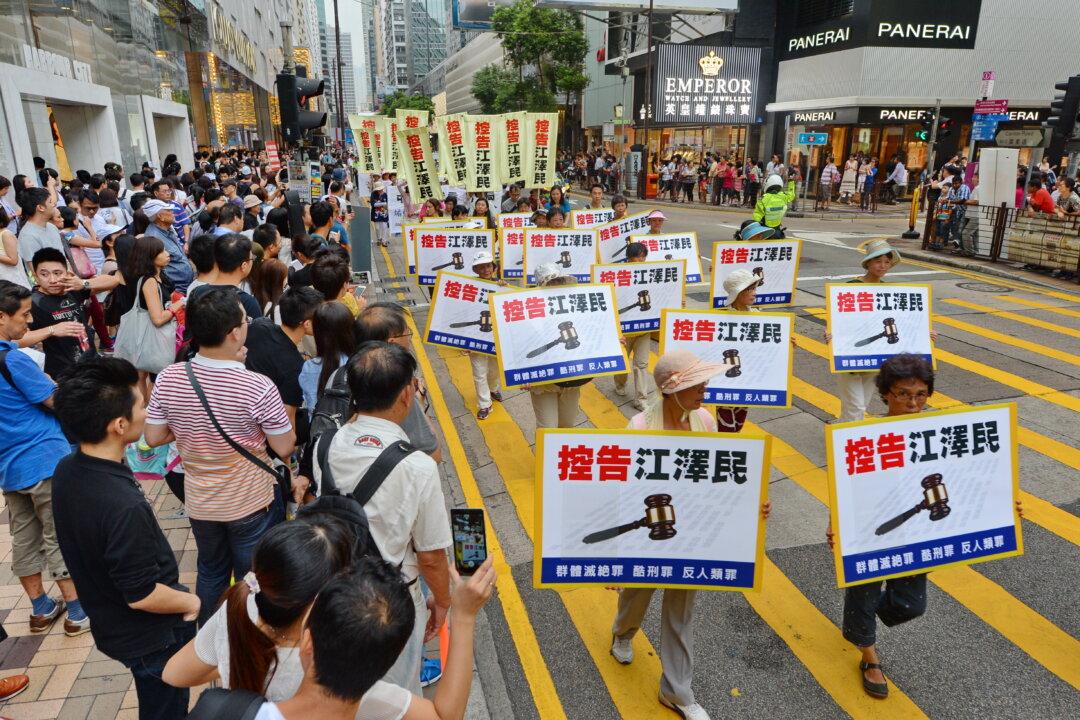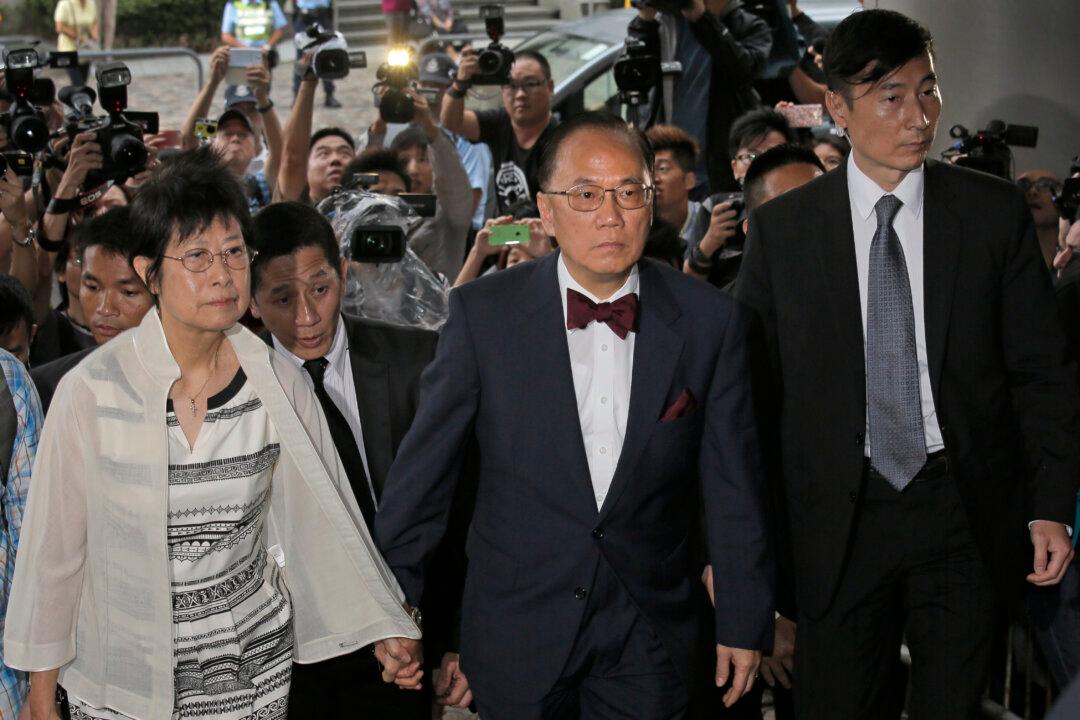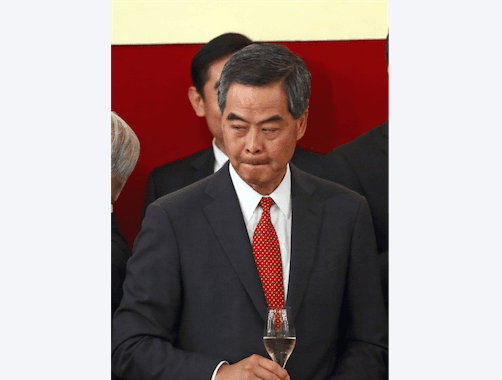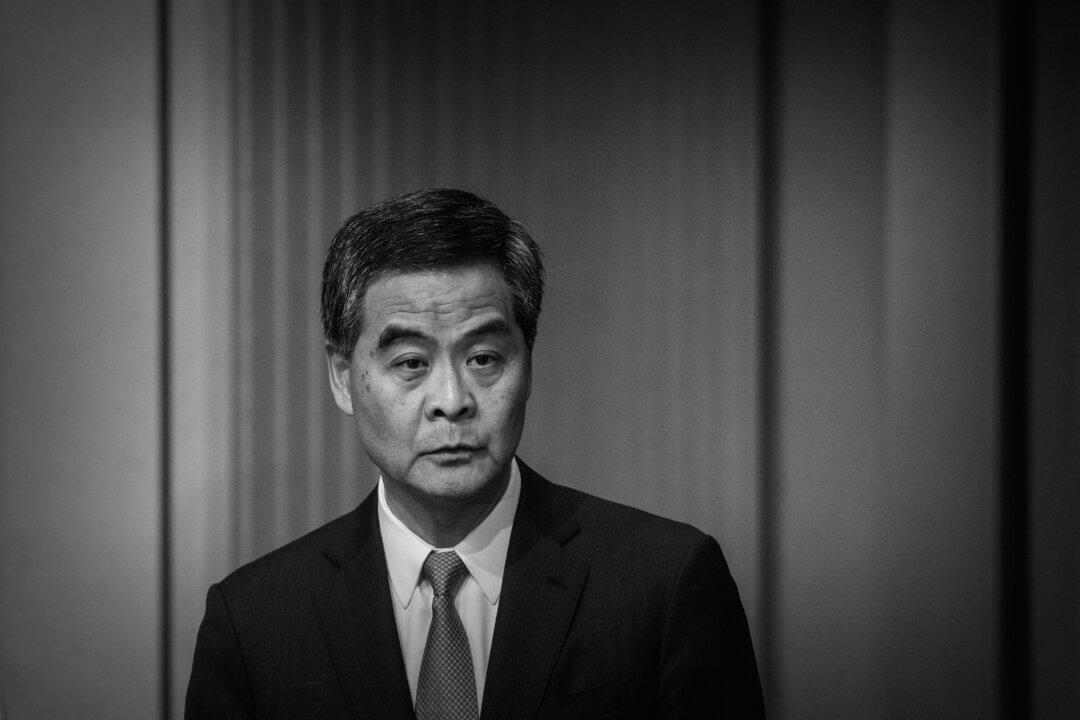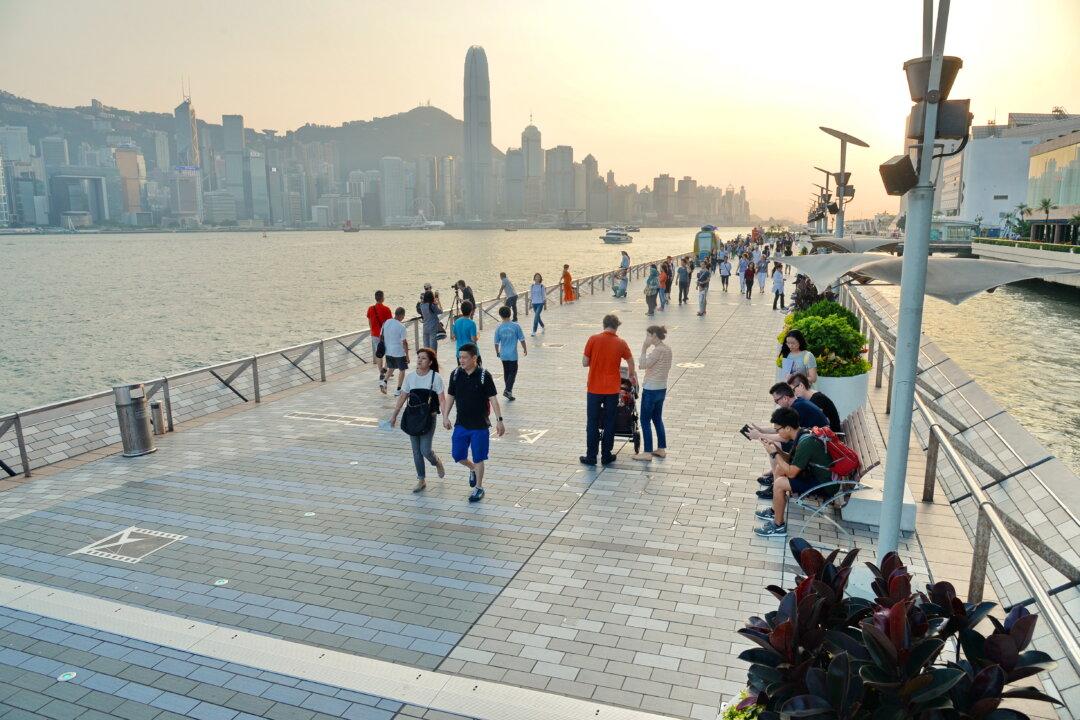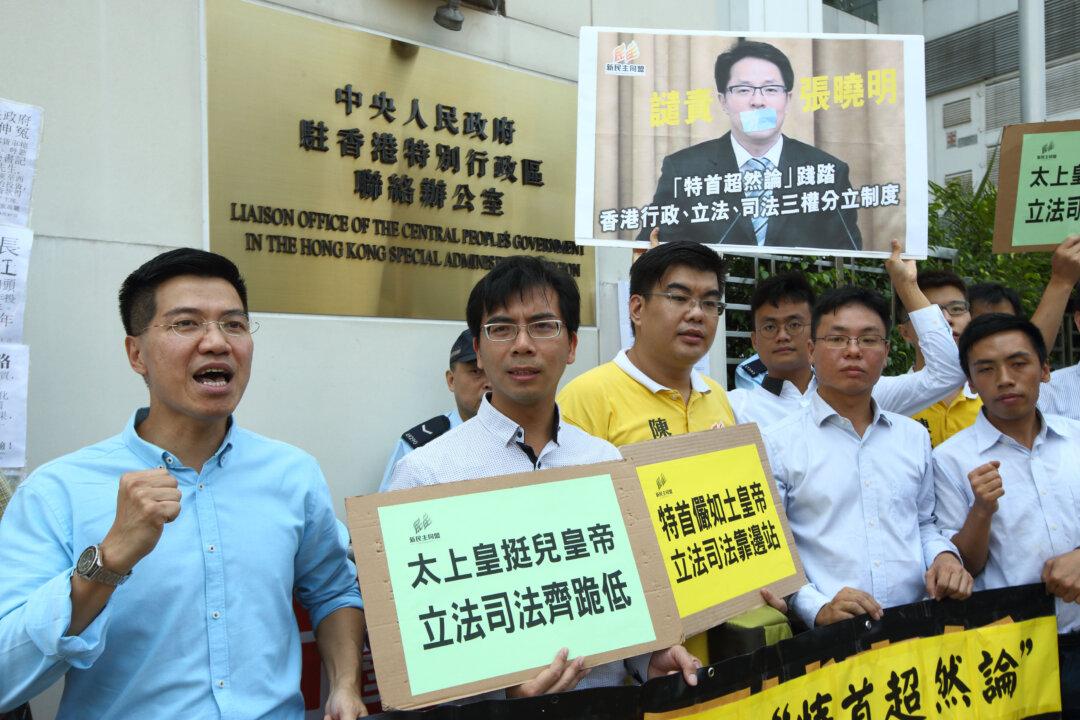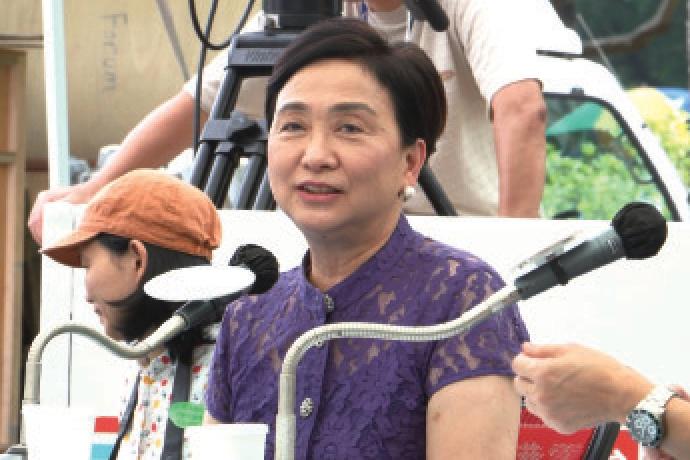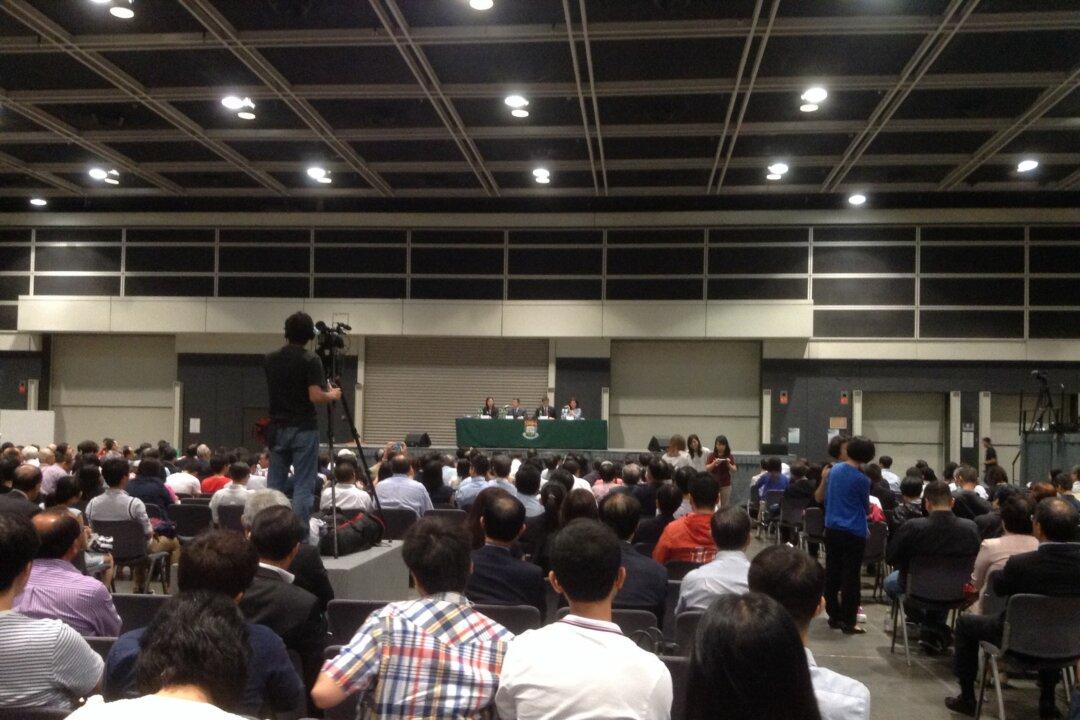Latest News
Latest News | LATEST STORIES
45 Hong Kong Pro-Democracy Figures Jailed in Landmark National Security Law Case
Legal scholar Benny Tai was among those sentenced on Nov. 19.
|
10 Years After Umbrella Movement, Where Are the Young Activists Now?
“Ten years from now, I wonder what the students of Scholarism will be doing in society?” Joshua Wong, the young pro-democracy activist, wrote in a post in 2014.
|
Good Rewarded and Evil Punished in Hong Kong
The many Chinese officials who have recently met their downfall have something in common: they followed former CCP leader Jiang Zemin in brutally suppressing Falun Gong.
|
Rejection of Hong Kong University Pro-Vice Chancellor Seen as Campaign Against Freedom
The Hong Kong University (HKU) Council has rejected the appointment of former law dean Johannes Chan to the post of pro-vice chancellor, although the HKU election committee recommended Chan for the position.
|
Hong Kong’s District Council Election Gets Underway
The 2-week nomination period for Hong Kong’s District Council Election began on Oct. 2. A total of 431 constituencies will be up for grabs in 18 different districts.
|
Hong Kong Falun Gong Practitioners March to End CCP
Falun Gong practitioners held a rally and parade in Hong Kong on Oct. 1, calling for justice for the criminals who persecute Falun Gong and an end to the Chinese Communist Party (CCP).
|
‘Supremacy of the Chief Executive Theory’ Reveals Chinese Regime’s Devilish Nature
“The Chief Executive is actually supreme,” said Hong Kong Chief Executive Leung Chun-ying on Sept. 16. He was responding to Hong Kong Liaison Office Director Zhang Xiaoming’s comments on Hong Kong’s political system and the role of the Chief Executive.
|
Real Estate Developers Resist Government-Backed Project in Hong Kong
The Hong Kong government recently gave its stamp of approval to a development project that had very little public support, upsetting many real estate companies who have now formed an alliance to oppose the plan.
|
Beijing Renews Contact With Hong Kong Pan-Democrats
Two months after Hong Kong vetoed a Beijing-backed political reform bill, Beijing took the initiative to renew contact with the pan-democrats in Hong Kong.
|
Academic Autonomy Seriously Threatened in Hong Kong
The recent scandal in which Hong Kong Chief Executive Leung Chun-ying is suspected to have interfered with the appointment of Professor Johannes Chan as pro vice-chancellor of the University of Hong Kong (HKU) has caused widespread concern in the territory.
|
45 Hong Kong Pro-Democracy Figures Jailed in Landmark National Security Law Case
Legal scholar Benny Tai was among those sentenced on Nov. 19.
|
10 Years After Umbrella Movement, Where Are the Young Activists Now?
“Ten years from now, I wonder what the students of Scholarism will be doing in society?” Joshua Wong, the young pro-democracy activist, wrote in a post in 2014.
|
Good Rewarded and Evil Punished in Hong Kong
The many Chinese officials who have recently met their downfall have something in common: they followed former CCP leader Jiang Zemin in brutally suppressing Falun Gong.
|
Rejection of Hong Kong University Pro-Vice Chancellor Seen as Campaign Against Freedom
The Hong Kong University (HKU) Council has rejected the appointment of former law dean Johannes Chan to the post of pro-vice chancellor, although the HKU election committee recommended Chan for the position.
|
Hong Kong’s District Council Election Gets Underway
The 2-week nomination period for Hong Kong’s District Council Election began on Oct. 2. A total of 431 constituencies will be up for grabs in 18 different districts.
|
Hong Kong Falun Gong Practitioners March to End CCP
Falun Gong practitioners held a rally and parade in Hong Kong on Oct. 1, calling for justice for the criminals who persecute Falun Gong and an end to the Chinese Communist Party (CCP).
|
‘Supremacy of the Chief Executive Theory’ Reveals Chinese Regime’s Devilish Nature
“The Chief Executive is actually supreme,” said Hong Kong Chief Executive Leung Chun-ying on Sept. 16. He was responding to Hong Kong Liaison Office Director Zhang Xiaoming’s comments on Hong Kong’s political system and the role of the Chief Executive.
|
Real Estate Developers Resist Government-Backed Project in Hong Kong
The Hong Kong government recently gave its stamp of approval to a development project that had very little public support, upsetting many real estate companies who have now formed an alliance to oppose the plan.
|
Beijing Renews Contact With Hong Kong Pan-Democrats
Two months after Hong Kong vetoed a Beijing-backed political reform bill, Beijing took the initiative to renew contact with the pan-democrats in Hong Kong.
|
Academic Autonomy Seriously Threatened in Hong Kong
The recent scandal in which Hong Kong Chief Executive Leung Chun-ying is suspected to have interfered with the appointment of Professor Johannes Chan as pro vice-chancellor of the University of Hong Kong (HKU) has caused widespread concern in the territory.
|

